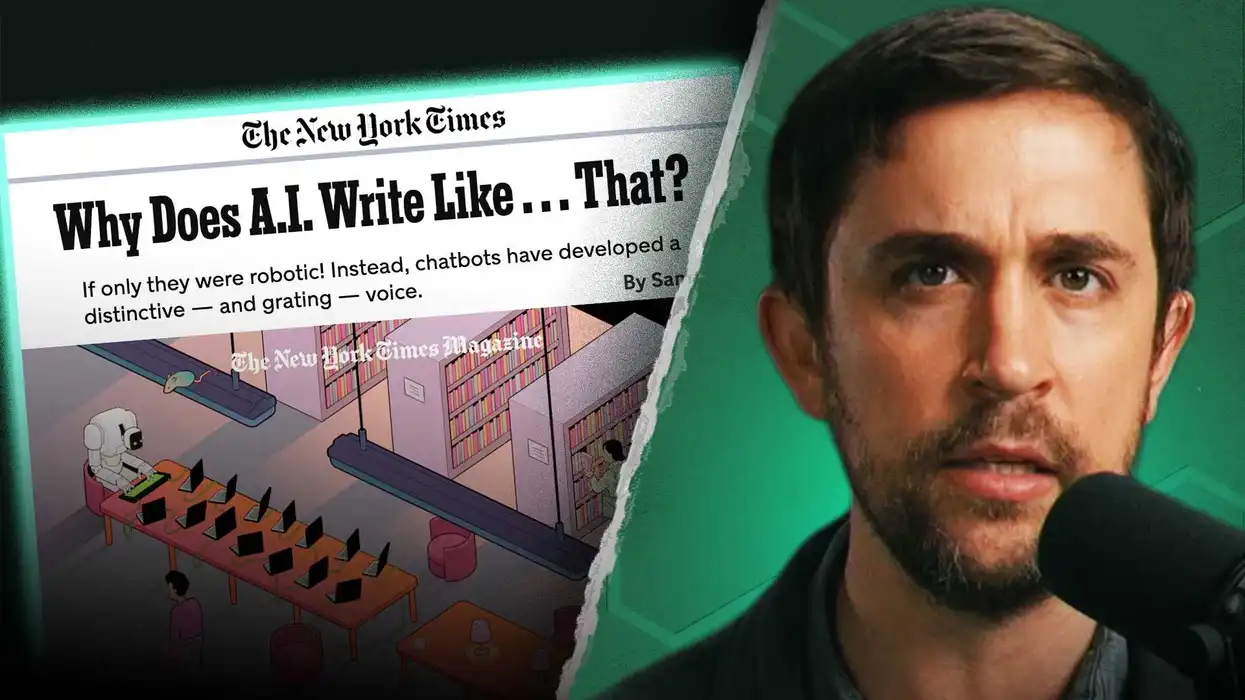
© 2025 Blaze Media LLC. All rights reserved.
"One landmark step in a very long journey."
 (Image: Shutterstock.com)
(Image: Shutterstock.com)
NEW YORK (TheBlaze/AP) -- Scientists announced Wednesday recovering stem cells from cloned human embryos, a longstanding goal that could lead to new treatments for such illnesses as Parkinson's disease and diabetes. But even with some of the potential health benefits, many are condemning the research as unethical, as it has been deemed by some in the past.
Stem cells can turn into any cell of the body, so scientists are interested in using them to create tissue for treating disease. Transplanting brain tissue might treat Parkinson's disorder, for example, and pancreatic tissue might be used for diabetes.
But transplants run the risk of rejection, so more than a decade ago, researchers proposed a way around that: Create tissue from stem cells that bear the patient's own DNA, obtained with a process called therapeutic cloning.
If DNA from a patient is put into a human egg, which is then grown into an early embryo, the stem cells from that embryo would provide a virtual genetic match. So in theory, tissues created from them would not be rejected by the patient.
That idea was met with some ethical objections because harvesting the stem cells involved destroying human embryos.
"It’s a grave concern that some scientists are still pursuing human cloning, a technology that will open the door to human engineering and a brave – but highly dangerous – new world. Human cloning by this technique requires the specific creation of a new individual, albeit cloned, at the embryo stage, using human eggs and human tissue cells," Life News wrote. "Modern science has passed this by, especially in regards to stem cells. Creating and destroying cloned human embryos to extract their embryonic stem cells is unethical, and the entire faulty concept of using the cloning technique has been superseded by uncontroversial techniques."
"Creating new human lives in the laboratory solely to destroy them is an abuse denounced even by many who do not share the Catholic Church's convictions on human life," Cardinal Seán O'Malley, OFM Cap., of Boston said in a statement. "Also, this means of making embryos for research will be taken up by those who want to produce cloned children as 'copies' of other people. Whether used for one purpose or the other, human cloning treats human beings as products, manufactured to order to suit other people's wishes. It is inconsistent with our moral responsibility to treat each member of the human family as a unique gift of God, as a person with his or her own inherent dignity. A technical advance in human cloning is not progress for humanity but its opposite."
The Rev. Tad Pacholczyk, director of education for National Catholic Bioethics Center, an independent think tank in Philadelphia, reiterated his opposition to embryo cloning, calling the approach unethical.
"It involves the decision to utilize early human beings as repositories for obtaining desired cells," he said. "You're creating them only to destroy them."
Scientists have tried to get stem cells from cloned human embryos for about a decade, but they've failed. Generally, that's because the embryos stopped developing before producing the cells. In 2004, a South Korean scientist claimed to have gotten stem cells from cloned human embryos, but that turned out to be a fraud.
In Wednesday's edition of the journal Cell, however, scientists in Oregon report harvesting stem cells from six embryos created from donated eggs. Two embryos had been given DNA from skin cells of a child with a genetic disorder, and the others had DNA from fetal skin cells.
Shoukhrat Mitalipov of the Oregon Health & Science University, who led the research, said the success came not from a single technical innovation, but from revising a series of steps in the process. He noted it had taken six years to reach the goal after doing it with monkey embryos.
Mitalipov also said that based on monkey work, he believes human embryos made with the technique could not develop into cloned babies, and he has no interest in trying to do that. Scientists have cloned more than a dozen kinds of mammals, starting with Dolly the sheep.
The new work was financed by the university and the Leducq Foundation in Paris.
Dr. George Daley, a stem cell expert at Children's Hospital Boston who didn't participate in the work, called the new results "one landmark step in a very long journey" toward creating DNA-matched transplant tissue.
Now, Daley said, scientists must compare the embryo-cloning approach with another technology that reprograms blood or skin cells directly into substitutes for embryonic stem cells. This reprogramming approach is technically simpler and doesn't involve embryos or require the donation of human eggs, and it was widely acclaimed when it was reported in 2007. Its Japanese developer shared a Nobel Prize last year.
But these substitute cells show some molecular differences compared to embryonic ones, which has led to questions about whether they can safely be used for treating patients. So it's essential to compare the cells from the two methods, Daley said.
The new results mean "we have another tool," he said. "We have to learn more about this tool."
Daley said he believed scientists will prefer using the reprogramming approach unless it can be proven "beyond a shadow of a doubt" that embryo cloning produces better cells for treating patients.
Mitalipov said he believed his technique would present a particular advantage for treating patients with a certain type of rare diseases. These are caused by mutations in genes of the mitochondria, the power plants of cells. He noted his technique, unlike the cell-reprogramming approach, would supply tissue with new mitochondrial genes that could replace defective ones. Those new genes would come from the egg.
Marcy Darnovsky, executive director of the Center for Genetics and Society in Berkeley, Calif., said she was glad that Mitalipov doubted the embryos could be used to clone babies. She said the report still provides a good opportunity for the federal government to ban the use of cloning for reproduction.
Featured image via Oregon Health & Science University.
--
Related:
Want to leave a tip?
We answer to you. Help keep our content free of advertisers and big tech censorship by leaving a tip today.
Want to join the conversation?
Already a subscriber?
more stories
Sign up for the Blaze newsletter
By signing up, you agree to our Privacy Policy and Terms of Use, and agree to receive content that may sometimes include advertisements. You may opt out at any time.
Related Content
© 2025 Blaze Media LLC. All rights reserved.
Get the stories that matter most delivered directly to your inbox.
By signing up, you agree to our Privacy Policy and Terms of Use, and agree to receive content that may sometimes include advertisements. You may opt out at any time.






